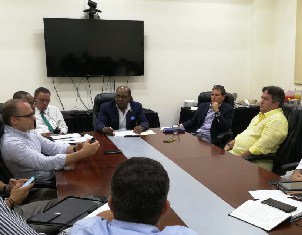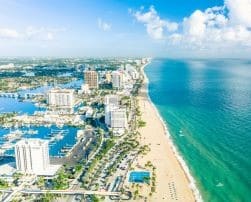Barbadian Economist says U.S. Virgin Islands on track to fiscal stability


BARBADOS – Respected Caribbean economist Jeremy Stephen praised the U.S. Virgin Islands Government’s recent efforts to correct the fiscal imbalances that have challenged its treasury for successive administrations.
Stephen, who has been reviewing the financial outlook of the U.S. Virgin Islands in light of Puerto Rico’s financial challenges, described the measures taken by Governor Kenneth E. Mapp and the Territory’s Legislature to trim costs and increase revenues for funding essential services while maintaining public sector employment as “encouraging”.
Stephen, President of the Barbados Economics Society, said his own country, which has traditionally been one of the region’s more stable economies, continues to maintain a large debt. “Not only a large fiscal deficit or financing deficit, but a massive public indebtedness position, with our public debt to GDP numbers rising nearly to 115 percent of GDP,” he said.
In favorable contrast, the USVI’s debt to GDP ratio is about 55 percent, with matching fund bonds constituting approximately 59 percent of the USVI debt. The Territory, which has never defaulted on its obligations, recently cut its FY 2016-2017 budget by $33 million through prudent spending measures.
For the first time in five years, the USVI realized a slight uptick in its GDP and increased economic growth is forecast.
“It is very heartening to see the Governor and the leaders in the USVI trying to address the situation at hand, with some smart and creative financing options, while going after arrears, which is something that our government in Barbados took quite some time to implement as a major part of its strategy,” said Stephen, an economist, financial analyst and lecturer at the University of the West Indies’ Cave Hill campus.
Stephen, who holds a Masters in Finance and Entrepreneurship from Imperial College London, commended the pursuit of property tax collection, limits on property tax exemptions, and the avoidance of major job losses in the public sector while pursuing expenditure cuts.
“I wish that Barbados would pursue a similar course, given the cost of downgrades that we’ve been having over the last six years from all major ratings agencies,” he reflected. “It’s good to see that some banks are offering the Territory lines of credit based on anticipated revenues from fiscal consolidation, particularly with the USVI delinquent property tax and income tax collection programs, and the economic recovery activities focused on new revenues.”
“It’s also good to see that the Government is reducing the significant wastage,” opined Stephen, who said attempts to address fiscal deterioration at these early stages were “strong and direct”. “I do hope that, in due time, investors in the USVI can become confident that once Government corrects its affairs, there won’t be such a big drag on the economy, particularly in light of uncertainty.”
The USVI still holds substantial levers to respond to additional fiscal risks, he said. Property taxes are very low when compared with the United States and other territories, including its Caribbean neighbors, and the gross receipt tax remains at only 5 percent.



